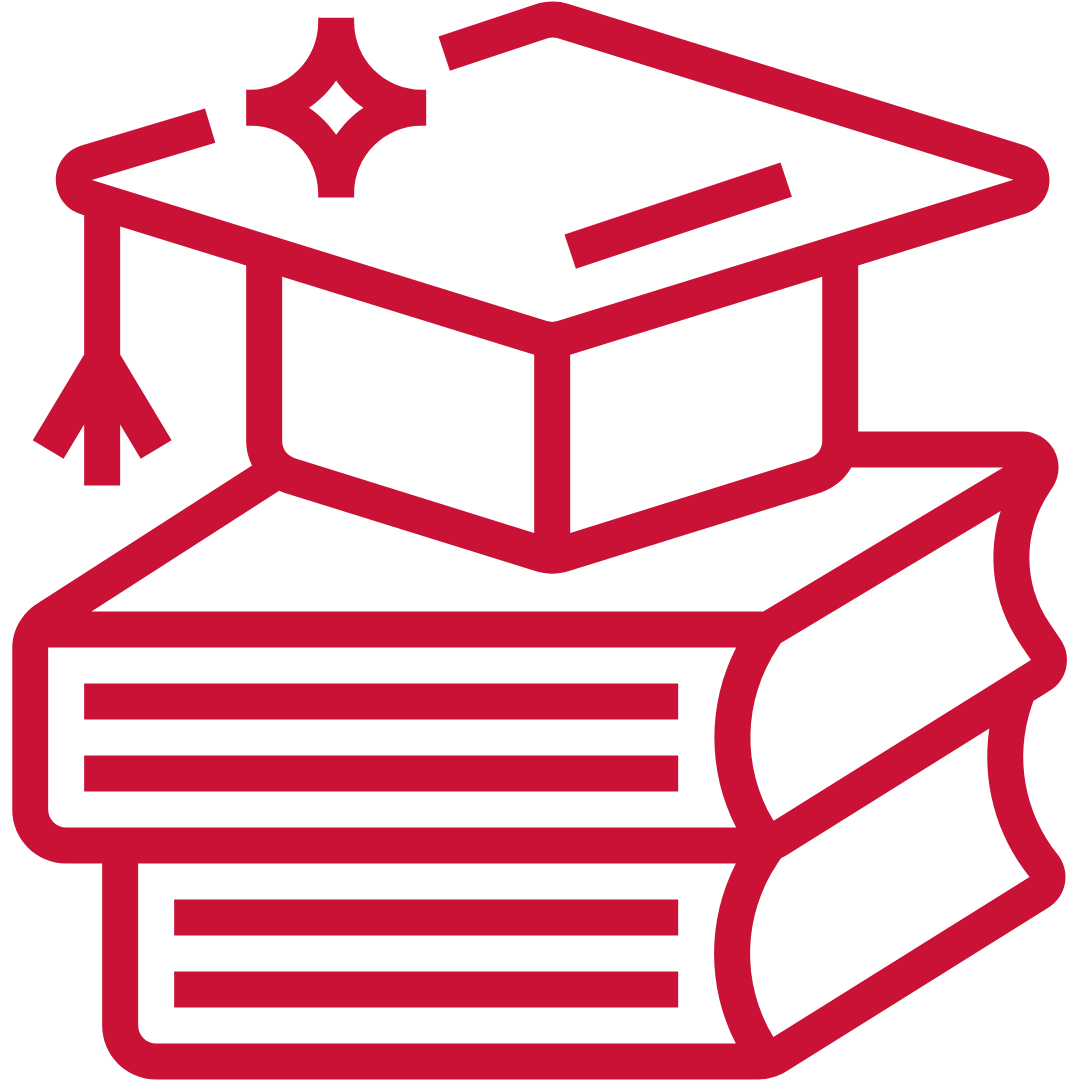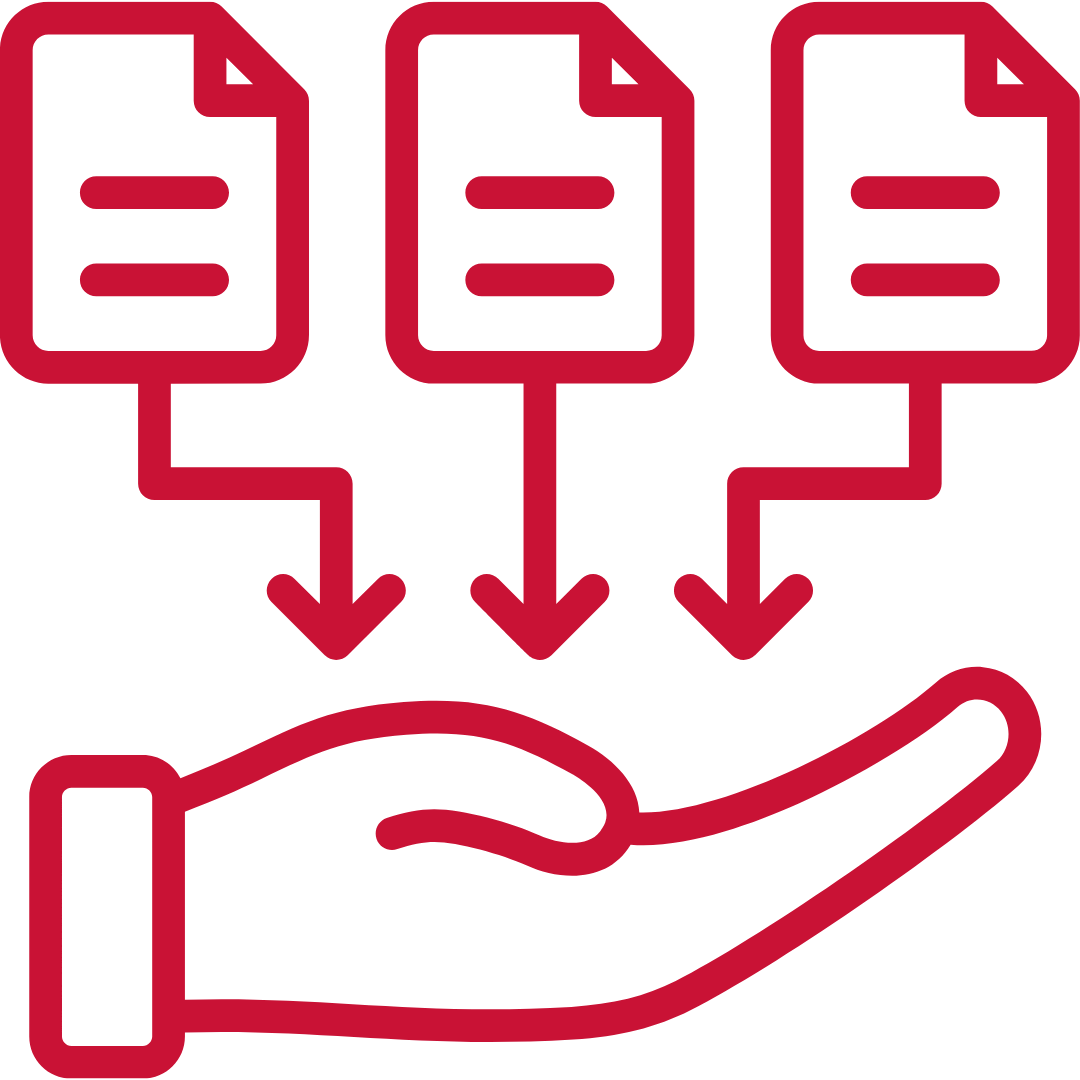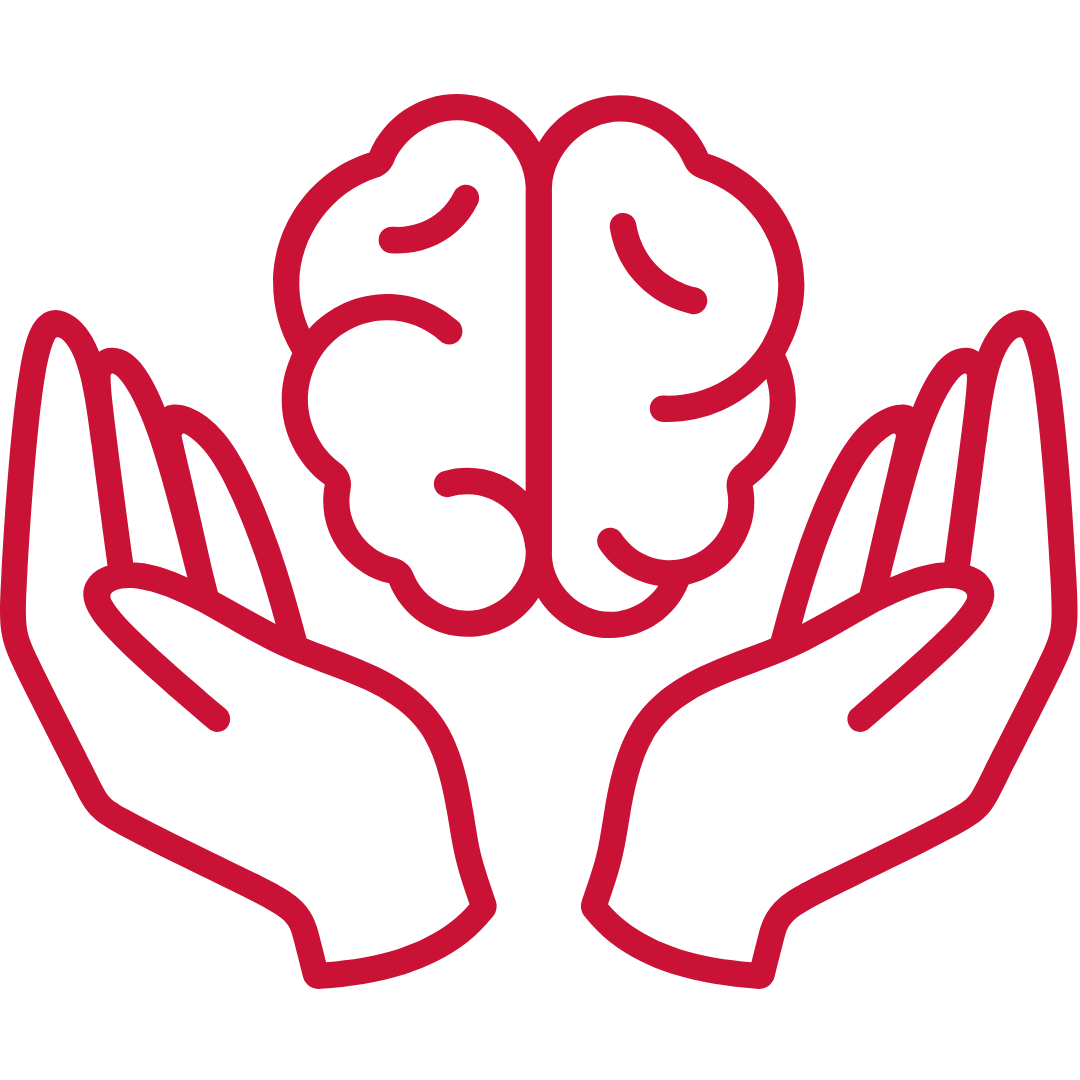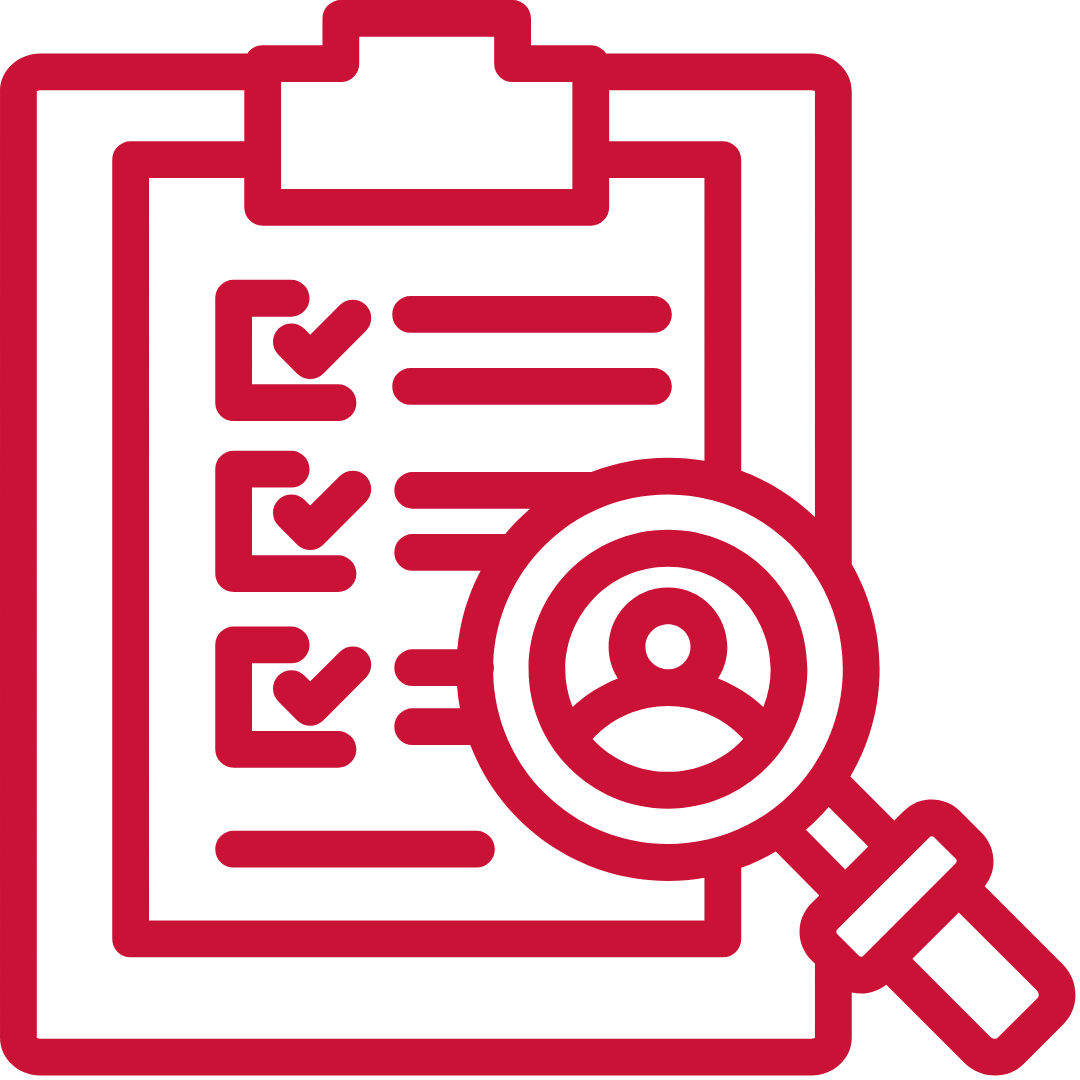CTL Workshops
At the Center for Teaching and Learning, we believe that continuous learning is essential for educators. Our workshops are designed to provide innovative strategies, practical tools, and collaborative experiences that enhance teaching effectiveness and student engagement. These interactive sessions cover a wide range of topics, from mastering digital tools to innovative teaching practices. Each workshop is designed to be practical, offering immediate takeaways you can apply to your classroom or learning environment.
Spring 2026 CTL Programming
Unless on Zoom, all workshops take place in Hancock 1020
Updated 1/22/2026
Events still being added! Check back for updates.
Click workshop links to register
Spring 2025 CTL Programming
Note: Click on the title to sign up for the workshop through Calendly.
Brightspace Gradebook and Assignment Tools
Tuesday, January 20, 2026 1:00-3:00pm
Digital Education and the Center for Teaching and Learning will host an open session helping faculty setup their Brightspace Gradebook for the Spring semester. Please bring a device. If you missed this opportunity and need support, please see Digital Education's workshop page for their numerous offerings this semester.
Sip & Share
Wednesday, January 28, 2026 10:00-11:00am
Start your morning at Sip & Share, an informal gathering providing a chance for faculty to connect over a mutual appreciation for coffee (or tea) and discuss teaching ideas and challenges. We plan to discuss Pamela Scully's Chronicle essay "The Case for ‘Slow Teaching’" but welcome additional topics. Whether you're looking to brainstorm, share strategies, or simply listen in, all are welcome. If you're not able to read Scully's essay, no worries—just bring your curiosity and conversation—and stay for a few minutes or longer as your schedule allows.
Sip & Share
Monday, February 9, 2026 10:00-11:00am
Start your morning at Sip & Share, an informal gathering providing a chance for faculty to connect over a mutual appreciation for coffee (or tea) and discuss teaching ideas and challenges. We plan to discuss alternative grading but welcome additional topics. Whether you're looking to brainstorm, share strategies, or simply listen in, all are welcome. If you're not able to read Scully's essay, no worries—just bring your curiosity and conversation—and stay for a few minutes or longer as your schedule allows.
What Are We Thinking About "Critical Thinking"?
Greg Machacek
Wednesday, February 11, 2026 12:30-1:45pm
It is common to assert that colleges develop students’ “critical thinking” skills, but there is less consensus regarding precisely what those skills are.
- What critical thinking skills are especially important to your discipline or your own classes?
- Are there any that a college should seek to cultivate in all of its students?
- Are there any that contemporary life demands with special urgency?
- Have you developed classroom work or out-of-class assignments that you think develop particular critical thinking skills in an especially effective way?
- Do you have success stories to share?
- Are some skills foundational, with others that build on them?
- Do you work from some totalizing taxonomy of critical thinking skills that you have found effectively categorizes and relates them?
Greg Machacek will moderate a discussion on the topic, but as the above set of questions may perhaps indicate, he will be more interested in eliciting participants’ answers than offering any of his own.
Raising the Bar: Addressing the Impact of Grade Inflation
Kristin Mende
Tuesday, February 17, 2026 2:00-3:15pm
This workshop will explore the growing issue of grade inflation in higher education, examining its causes, implications, and potential solutions. Participants will engage in discussions about the factors contributing to inflated grades, including changing academic expectations, institutional pressures, and student behavior. The workshop will also feature a collaborative exploration of strategies to address the problem, such as revising grading policies, fostering academic rigor, and promoting alternative assessment methods. This session is ideal for educators that are interested in preserving the credibility of academic achievement in today’s higher education landscape.
Designing Writing Assignments for Student Learning and Growth
Stacy Wittstock
Thursday, February 19, 2026 11:00am-12:15pm
Assigning a writing project can be an excellent way to encourage students to engage deeply with core topics and concepts in a course, while also offering instructors with a way to assess students’ content knowledge and their acquisition of key disciplinary genres and conventions for writing and communication. But, a successful writing assignment that encourages deep learning and growth is much more than just the prompt and the final product. In this session, we’ll talk through strategies for building writing assignments that foster student learning and development in ways that are manageable for both students and instructors. We’ll walk through the core components of a writing assignment unit (e.g., prompts, class activities, rubrics and other assessment tools, etc.) and look at successful models. We’ll also discuss strategies for guiding students through the writing process, including in- and out-of-class activities centered on brainstorming, drafting, peer review, revision, and more. Participants will have the opportunity to work through a practical heuristic focused on writing assignment design and have generative discussions with peers about their ideas for assigning writing.
Becoming the Best Academic Advisor: Leveraging Self-Service Banner & DegreeWorks
Michaela Frisbee
Wednesday, March 4, 2026 2:00-3:15pm
This session will support advisors in effectively navigating key academic technology platforms, including DegreeWorks and Self-Service Banner, with the goal of enhancing advising effectiveness and streamlining academic planning processes.
Sip & Share
Tuesday, March 10, 2026 10:00-11:00am
This informal gathering provides a chance for faculty to connect over a mutual appreciation for coffee (or tea) and discuss teaching ideas and challenges. Want to discuss generative AI? Struggling to get students to read? Want to get students to engage more in discussions? Want feedback on a classroom idea you want to try? Did something great happen in class? Whether you're looking to brainstorm, share strategies, or simply listen in, all are welcome. No prep needed—just bring your curiosity and conversation—and stay for a few minutes or longer as your schedule allows.
Sip & Share
Thursday, April 23, 2026 10:00-11:00am
This informal gathering provides a chance for faculty to connect over a mutual appreciation for coffee (or tea) and discuss teaching ideas and challenges. Want to discuss generative AI? Struggling to get students to read? Want to get students to engage more in discussions? Want feedback on a classroom idea you want to try? Did something great happen in class? Whether you're looking to brainstorm, share strategies, or simply listen in, all are welcome. No prep needed—just bring your curiosity and conversation—and stay for a few minutes or longer as your schedule allows.
Navigating Reasonable Accommodations With OAA
Krista Ackert, Judy Creedon, Megan Dennis, and Susan Jenkins
Friday, 1/31, 12:30 pm - 1:45 pm| Join our workshop on reasonable accommodations for faculty to explore strategies for navigating complex situations, such as flexible attendance and assignment extensions. Through case studies and practical tips, we’ll equip you with the tools to support student success while maintaining academic standards.
Creating Accessible Documents: Practical Tools for Faculty
John Sellmeyer
Tuesday, 2/4, 11:00 am - 12:15 pm| Learn how to create accessible documents that support all students, including those with disabilities, in this interactive workshop for college faculty. In this session, you’ll gain practical skills to make Word documents, PowerPoint presentations, and PDFs accessible, including tips for converting and scanning materials into readable, accessible formats. Through live demonstrations and hands-on activities, you’ll learn to use built-in accessibility tools, fix common issues, and ensure your materials meet accessibility standards.
Teaching with Technology: Leveraging Built-in Tools to Enhance Lesson Delivery
Jeff Midgley
Monday, 2/10, 12:30 pm - 2:00pm| This workshop is designed for educators who primarily utilize traditional slideshows and want to enhance design and delivery of content. Participants will learn how to utilize tools built into Microsoft Powerpoint or Apple Keynote including hyperlinks, basic icon development, countdown timers, and drawing inspiration from industry. Participants should bring their computers along with an existing slideshow they wish to enhance.
Navigating LLMs: Platforms, Implications, and Applications
Kevin Gaugler
Tuesday, 2/11, 12:30 pm - 1:45 pm| Large language models are transforming teaching, research, and work, but choosing the right model can be daunting. This workshop unpacks the rapidly evolving landscape of LLMs, exploring their strengths, limitations, and ethical considerations. This session will break down key differences between platforms, discuss real-world applications, and share strategies for optimizing results. Attendees will gain practical insights and strategies for selecting models based on specific task requirements to make AI work smarter.
It's our community. Let's get into it!
Melissa Gaeke
Friday, 2/14, 11:00 am - 12:15 pm | This workshop will introduce participants to the best practices of community-based learning; explore a number of ways to incorporate this into a variety of courses; and share the resources available to faculty interested in using this pedagogy.
Becoming the Best Academic Advisor: Creating Positive and Productive Conversations
Daria Hanssen and Michaela Frisbee
Tuesday, 2/18, 12:30 pm - 1:45 pm | This workshop will focus on the impact of language in advising appointments, emphasizing how specific words, phrases, and communication techniques can either empower students or create unintended barriers. Advisors will learn strategies for using inclusive, supportive, and clear language to foster student engagement, build trust, and promote student success.This workshop is co-sponsored by the centre for Advising & Academic Services.
Early Technology Rejectors: Ethics of AI Writing and Surveillance
Cara Messina, Stacy Wittstock
Wednesday, 2/19, 2:00 pm -3:15 pm | Chris Gilliard posed this idea: "Too many people in tech talk about being an early adopter and not enough talk about being an early rejector." This workshop will untangle what it means to be an early technology rejector in the face of a dominating technology: artificial intelligence writing or learning language models (LLMs). This workshop will explain the basics of LLMs, what they can do, what they cannot do, and the ethical considerations central to both using and understanding these technologies (including labor issues, rampant misinformation, algorithmic bias, environmental catastrophes, and intellectual property issues). These technologies are not going away, so it is crucial for higher education faculty to stay well-informed. Instead of relying on surveillance technologies to police students from using LLMs, we propose different methods you can take to your classroom. First, we will brainstorm how to have transparent conversations with students about these technologies: How are these technologies similar to or different from search engines? Where is the data coming from? What are the material impacts of LLMs? What are LLMs strengths and weaknesses? How may relying on LLMs impact learning? Second, we will provide guidelines and space for reimagining writing activities and assessment as early technology rejectors. You should attend if you want to have open conversations with students on how to approach AI writing, and get ideas for writing activities and assessments that circumvent students’ reliance on these technologies.
Supporting Student Mental Health for Educators
Marisa Moore
Thursday, 2/20, 9:30 am - 10:45 am| Join us for an insightful session with Counseling Services as we explore strategies to enhance mental health and well-being in the college classroom. This workshop will provide faculty with practical tools and techniques to create a supportive and inclusive learning environment. Topics will include recognizing signs of mental distress, fostering open communication, and integrating mental health resources into your teaching practices.
Accommodations in the Classroom: A Q&A with OAA
Krista Ackert, Susan Jenkins
Tuesday, 2/25, 2:00 pm - 3:15 pm| Do you want some guidance on how to best support students with accommodations? Do you want more clarification on what some of the classroom and testing accommodations mean on the OAA Notification of Academic Accommodations Form? Join OAA staff for a Q&A session to address common questions and best practices. Submit questions in advance here, or come to the session with your questions, keeping in mind FERPA and student privacy and do not disclose anything that could identify a student.
What questions do you want OAA staff to address about student accommodations? Submit questions in advance on this form or come to the session with your questions. Keep in mind FERPA and student privacy and do not disclose anything that could identify a student. Why should I attend? You want to discuss how to best support students with testing and classroom accommodation with other faculty and OAA staff.
Teaching in Honors: Seminars, Honors by Contract, and Honors Thesis Projects
Lisa Neilson, Janine Peterson
Wednesday, 2/26, 11:00 am - 12:15 pm| This session will demystify the process of teaching honors seminars and overseeing honors research, such as honors-by-contract and thesis projects. A panel of faculty in varied disciplines will give pointers from their experience on the topics: creating an honors seminar as a spring attachment course; crosslisting your honors seminar with a major course; developing an honors seminar as a junior faculty member; developing an honors seminar from a FYS or upper division course, or vice versa; and creating honors courses that promote further undergraduate research (HbCs and theses). There will be ample time for question and answer so more experiences can be shared.
Why should I attend? Attendees will walk away with strategies for developing and teaching honors seminars, and how to mentor student research projects in Honors.
Panelists:
Dr. Joseph Campisi, Associate Professor of Philosophy
Dr. Zion Klos, Associate Professor of Environmental Science and Policy
Dr. Jim Melitski, Professor of Public Administration
Prof. Mindy Stockfield, Professional Lecturer of Communications
Dr. Sang-Keun Yoo, Assistant Professor of English
Becoming the Best Academic Advisor: Guiding the Aspiring Abroad Student
James Morrow-Polio
Wednesday, 2/26, 2:00 pm - 3:15 pm| Join staff from Marist Abroad to discuss how to support students interested in studying abroad. We will discuss the roles of the Academic Advisor, Abroad Office, and Student in the abroad process. Lastly, we will share tools and guidance on how to best support students during the planning, application, pre-departure, and while-abroad phases. This workshop is co-sponsored by the centre for Advising & Academic Services.
Designing Rubrics for Grading and Assessment
Victoria Ferrera
Tuesday, 3/4, 2:00 pm - 3:15 pm | The hardest part about rubrics is developing them. A well-designed rubric helps students understand what is expected of them and provides faculty with opportunities to be intentional about assessing student learning. This workshop will provide an overview of the various types of rubrics, levels of measurement, designing effective rubrics, and how to use rubrics to streamline assessment and grading processes. Participants will engage in an evaluation of the effectiveness of rubrics and how using rubrics in their teaching can enhance student engagement and learning.
Supporting Student Learning through Efficient and Effective Writing Feedback
Stacy Wittstock
Thursday, 3/6, 12:30 pm - 1:45 pm| Effective feedback on students’ work is one of the most vital mechanisms for learning in a teachers’ toolkit. However, providing individualized feedback to students is also one of the most challenging and time-consuming tasks we take on as teachers. It can be difficult to determine what feedback will be most helpful to each student or on each assignment, and the labor involved can often turn us from sensitive and supportive to unintentionally harsh or unhelpfully doctrinaire. As Bean and Melzer (2021) put it in Engaging Ideas, “Even though we know how we ourselves feel when we ask a colleague to read one of our drafts...we sometimes forget these feelings when we comment on our students’ papers” (p. 298). This workshop will outline concrete strategies for providing students with learning-focused, humane feedback on their writing while also avoiding teacher burnout. We’ll cover different genres (e.g., marginal comments, end notes) and modalities (e.g., written, audio, conferencing) of effective feedback. We’ll also discuss how to efficiently determine what to comment on, how much to comment, and how to encourage students to read teacher feedback.
Why should I attend? Participants will have opportunities to practice and apply different approaches in real time and can expect to leave the session with new techniques to try out in their own classrooms.
Let’s Revise: An Assessment
Goretti Benca, Vickie Ferrera, Christina Fojas
Friday, 3/7, 11:00 pm - 12:15 pm| In this session of our "Let's Revise" series, we'll explore the critical intersection of learning outcomes and assessment strategies. Participants will distinguish between formative and summative approaches, and understand the differences between assessment for learning and assessment of learning. Most of the session will involve a guided revision activity for your existing assessments. Participants should plan to bring one of their own or come to the session with an idea for an assessment they would like guidance in developing, and how these can be mapped back to learning outcomes.
Teaching Through Making: Experiential Learning in the Maker Lab
Ais Oisin, Maker Lab Manager
Tuesday, 3/11, 11:00 am - 12:15pm| The Maker Lab is a space for all Red Foxes to tap into their creativity, support academic instruction, and experiment with state-of-the-art technology. This workshop is designed to introduce faculty from diverse disciplines to the equipment available in the Maker Lab and explore possible ways to integrate it into your teaching. While utilized heavily in arts and fashion courses, the Maker Lab offers great potential for experiential learning in academic areas outside of SCA. Learn about ways that the Maker Lab can foster creativity, encourage interdisciplinary collaboration, and cultivate a culture of innovation at Marist!
Let’s Revise: A Rubric
Victoria Ferrera
Wednesday, 3/26, 11:00 am - 12:15 pm | Many faculty report that while rubrics ease the grading and assessment processes, they sometimes do not provide enough insight into student learning. This workshop will provide faculty with the opportunity to create and/or refine their own rubrics to ensure they are valid and reliable and provide valuable information about student achievement. Participants should bring a laptop or tablet to work on as well as at least one of their course assignments and any rubric/scoring tool used.
Active Reading Meets Discussion Boards: How to Use Perusall to Increase Student Engagement
Kristin Bayer, Sasha Biro, E Fredrick, Patty Tarantello
Monday, 3/31, 3:30 pm - 4:30 pm | Perusall is a tool that can be integrated into Brightspace, allowing students to read articles, chapters, or entire textbooks together. Billed as a “social learning platform”, students annotate assigned readings together, with the ability to upvote and reply to the annotations of others. Grading on your own or using Perusall’s machine learning based automatic grading, it’s easy to provide students with feedback on the quality of their work. Early research emerging about Perusall indicates it may increase the amount of time students spend preparing for class (Kohnke & Har, 2024) and lower students’ perceived difficulty of reading academic texts (Li & Li, 2023). This workshop will (1) explain what Perusall is, (2) discuss how the presenters have incorporated it into their classrooms, and (3) show the basics of using Perusall.
Why should I attend? Attendees will learn what Perusall is, why it is a tool that will work in a variety of classrooms, and the basics of how to use it.
Let’s Revise: A Writing Assignment Prompt
Stacy Wittstock
Wednesday, 4/2, 2:00 pm - 3:15 pm| Composing a good writing assignment prompt is a critical component of developing any successful course activity involving writing. However, it can be tricky to know what information students need, how to transparently communicate grading criteria, and how to word instructions to avoid confusion and ensure students complete the intended task. In this session in the Let’s Revise series, we’ll talk through the ingredients of a successful writing assignment prompt. We’ll look at examples of both effective and ineffective prompts and learn about helpful online resources and prompt repositories that can support redevelopment of current assignments and/or serve as inspiration for new ones. Most of the session will involve a guided revision activity for an existing prompt, so participants should plan to bring one of their own or come to the session with an idea for an assignment they would like guidance in developing.
What participants will gain from attending: Participants will have an opportunity to revise a current writing assignment prompt or develop a new one with concrete support and feedback from both the facilitator and peers.
Supporting Students with Disabilities in Your Classroom
Joelle Fingerhut and Dana Gathers
Monday, 4/7, 12:30 pm -1:45 pm | In this session, we will discuss strategies to best support neurodiverse students in the classroom. We will explore effective course and class policies, use of physical space, universal design for learning, and other strategies. Furthermore, we will spend time discussing common challenges faced by instructors when supporting neurodiverse individuals, and ways to navigate these challenges.
Who’s Your Co-Pilot: Using AI to Boost Lecture Slides
Jeff Midgley
Friday, April 11 12:30-2:30pm | This workshop takes off with image generation through AI, working with different models to generate images to enhance lectures. Participants will also learn about the different types of AI tools along with considerations for use. Focus is on basic-level use to enhance content and maximize productivity.
Learning Objectives
- List commonly used Artificial Intelligence (AI) tools
- Explain different types of AI and generative models
- Create prompts and revisions to generate AI content
- Discuss concerns of generative AI
Designing Writing Assignments for Student Learning and Growth
Stacy Wittstock
Thursday 4/17 11:00 am - 12:15 pm| Assigning a writing project can be an excellent way to encourage students to engage deeply with core topics and concepts in a course, while also offering instructors with a way to assess students’ content knowledge and their acquisition of key disciplinary genres and conventions for writing and communication. But, a successful writing assignment that encourages deep learning and growth is much more than just the prompt and the final product. In this session, we’ll talk through strategies for building writing assignments that foster student learning and development in ways that are manageable for both students and instructors. We’ll walk through the core components of a writing assignment unit (e.g., prompts, class activities, rubrics and other assessment tools, etc.) and look at successful models. We’ll also discuss strategies for guiding students through the writing process, including in- and out-of-class activities centered on brainstorming, drafting, peer review, revision, and more. Participants will have the opportunity to work through a practical heuristic focused on writing assignment design and have generative discussions with peers about their ideas for assigning writing.
What participants will gain from attending: Participants will receive guidance on writing assignment design through a heuristic they can take with them and will therefore leave this session with concrete ideas and strategies for developing their own writing projects.
Let’s Revise: A Syllabus
Goretti Benca, Christina Fojas
Tuesday, 4/22, 2:00 pm - 3:15 pm| This interactive session will help you transform your syllabus from a static document into a powerful learning tool that communicates expectation and supports student success. Inclusive teaching principles will be presented allowing faculty to develop strategies for improvement. Most of the session will be spent giving and receiving feedback from peers: bring a digital or printed copy of a current syllabus and prepare to reimagine your course's foundational document.
Let’s Revise: A Brightspace Site (for online courses)
Digital Education Instructional Designers
Wednesday, 4/23, 5:30 pm - 6:30 pm| Now that we have been working in Brightspace for over a year, it is a good time to revisit how course sites are designed from the student's perspective to ensure that we are using the LMS effectively for student success. This workshop will focus on course sites for asynchronous online classes and will provide faculty with the opportunity to work with the Instructional Designers in Digital Education to review the course sites and redesign them employing best practices. Participants should plan to work on to work on during the workshop. Registration required.
Let’s Revise: A Brightspace Site (for face-to-face courses)
Digital Education Instructional Designers
Wednesday, 4/30, 11:30 am - 1:00pm| Now that we have been working in Brightspace for over a year, it is a good time to revisit how course sites are designed from the student's perspective to ensure that we are using the LMS effectively for student success. This workshop will focus on course sites for traditional face-to-face classes and will provide faculty with the opportunity to work with the Instructional Designers in Digital Education to review the course sites and redesign them employing best practices. Participants should bring a laptop or tablet to work on during the workshop. Registration required, lunch provided.
Let’s Revise: A Brightspace Site (for face-to-face courses)
Digital Education Instructional Designers
Wednesday, 4/30, 11:30 am - 1:00pm| Now that we have been working in Brightspace for over a year, it is a good time to revisit how course sites are designed from the student's perspective to ensure that we are using the LMS effectively for student success. This workshop will focus on course sites for traditional face-to-face classes and will provide faculty with the opportunity to work with the Instructional Designers in Digital Education to review the course sites and redesign them employing best practices. Participants should bring a laptop or tablet to work on during the workshop. Registration required, lunch provided.
Let’s Revise: A Syllabus
Goretti Benca, Christina Fojas
Tuesday, 4/22, 2:00 pm - 3:15 pm| This interactive session will help you transform your syllabus from a static document into a powerful learning tool that communicates expectation and supports student success. Inclusive teaching principles will be presented allowing faculty to develop strategies for improvement. Most of the session will be spent giving and receiving feedback from peers: bring a digital or printed copy of a current syllabus and prepare to reimagine your course's foundational document.
Let’s Revise: A Brightspace Site (for online courses)
Digital Education Instructional Designers
Wednesday, 4/23, 5:30 pm - 6:30 pm| Now that we have been working in Brightspace for over a year, it is a good time to revisit how course sites are designed from the student's perspective to ensure that we are using the LMS effectively for student success. This workshop will focus on course sites for asynchronous online classes and will provide faculty with the opportunity to work with the Instructional Designers in Digital Education to review the course sites and redesign them employing best practices. Participants should plan to work on to work on during the workshop. Registration required.
Let’s Revise: A Brightspace Site (for face-to-face courses)
Digital Education Instructional Designers
Wednesday, 4/30, 11:30 am - 1:00pm| Now that we have been working in Brightspace for over a year, it is a good time to revisit how course sites are designed from the student's perspective to ensure that we are using the LMS effectively for student success. This workshop will focus on course sites for traditional face-to-face classes and will provide faculty with the opportunity to work with the Instructional Designers in Digital Education to review the course sites and redesign them employing best practices. Participants should bring a laptop or tablet to work on during the workshop. Registration required, lunch provided.
Let’s Revise: A Brightspace Site (for face-to-face courses)
Digital Education Instructional Designers
Wednesday, 4/30, 11:30 am - 1:00pm| Now that we have been working in Brightspace for over a year, it is a good time to revisit how course sites are designed from the student's perspective to ensure that we are using the LMS effectively for student success. This workshop will focus on course sites for traditional face-to-face classes and will provide faculty with the opportunity to work with the Instructional Designers in Digital Education to review the course sites and redesign them employing best practices. Participants should bring a laptop or tablet to work on during the workshop. Registration required, lunch provided.












